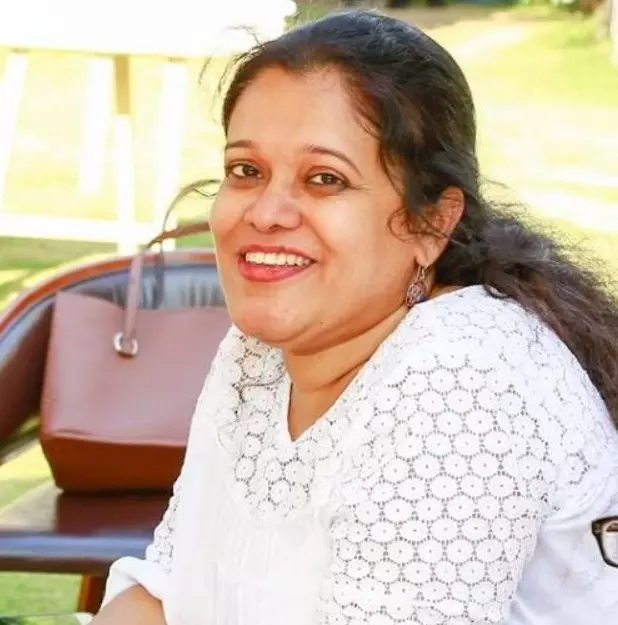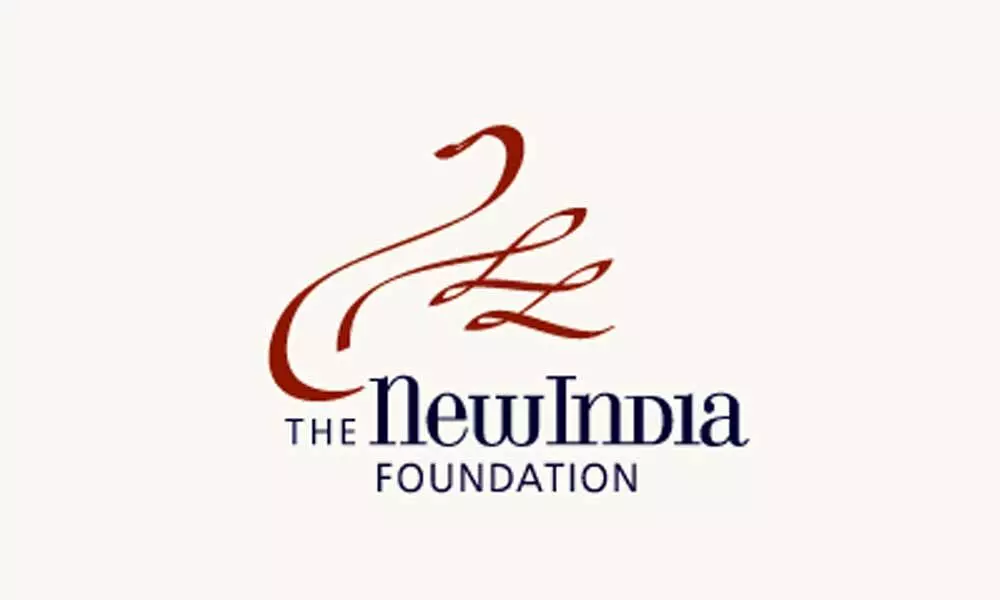Live
- Session on Narrative Building Highlights India’s Changing Global Stance- Sood
- Garena Free Fire MAX Redeem Codes (11 January 2025): Unlock Free Diamonds, Skins, and More
- Mangalore lit fest Policy Reforms and Outdated Laws needed-Sanjeev Sanyal
- Makara -Mahotsav (Sankranti Sambaralu) and National youth day celebrations at Sphoorthy Engineering college
- ASHA Workers Secure Improved Pay and Benefits
- Police Arrest “Digital Arrest” Mastermind
- Puri Backs Energy Security Summit in Mangaluru, Calls for Wider Public Engagement
- Daku Maharaj Trailer Released: Balakrishna's Intense Performance as a Master of Killing Gives Goosebumps
- India’s Energy Sector Poised for Growth Amid Challenges: Hardeep Singh Puri
- APPSC Recruitment Exams 2025: Exam Dates and Schedule for 8 Job Notifications Announced
Just In
The New India Foundation Fellowships Announced


- New India Foundation has announced tenth round of fellowships
- for book projects on post-independent India
In the seven decades since Independence, there has been a large body of work produced by Indian historians and social scientists. Taken singly, many of these studies are very impressive; viewed cumulatively, they add up to much less than what one might expect. It is this gap that the New India Foundation seeks to address, by sponsoring work of quality on the history of India since Independence.
Spearheaded by Ramachandra Guha, Nandan Nilekani, Srinath Raghavan, Manish Sabharwal and Niraja Gopal Jayal, the New India Foundation strives to foster interest in documenting the dynamic and rich landscape of post-Independence India and to encourage high-quality research.
The New India Foundation has announced 31st August 2020 as the deadline for applications for the tenth edition of its Fellowship programme. The Selected Fellows will join a community of twenty-one published authors.
According to Ramachandra Guha, Founding Trustee, 'The New India Foundation has published more than twenty outstanding works of history and non-fiction, many by younger writers, which have won a sheaf of prestigious awards. Our ongoing Fellowship programme aims to catalyze and produce many more such books, that will illuminate in different ways the history and politics of India since Independence'.
Open only to Indian nationals, these Fellowships will be awarded for one year and will carry a stipend of Rs 150,000 a month. Fellowship holders shall be expected to write original books. Proposals should be oriented towards publication, and outline a road map towards that destination. The Foundation is agnostic as regards genre, theme, and ideology: the only requirement is that the proposed works contribute to the fuller understanding of independent India. Thus Fellowship holders may choose to write a memoir, or a work of reportage, or a thickly footnoted academic study. Their books could be oriented towards economics, or politics, or culture. They could be highly specific—an account of a single decade or a single region—or wide-ranging, such as a countrywide overview.
From a large pool of several hundred applications, about 15-20 are shortlisted to meet with the jury and about 5 to 10 fellowships are awarded every two years.
Some of the most acclaimed works of non-fiction published in recent years have been supported by the New India Foundation fellowships: Rahul Pandita's 'Our Moon Has Blood Clots', Akshaya Mukul's 'Gita Press' and the 'Making of Hindu India', Amrita Shah's 'Ahmedabad: A City in the World,' Kartik Shanker's 'From Soup to Superstar: The Story of Sea Turtle Conservation', Gautam Bhatia's 'The Transformative Constitution' and Saba Dewan's 'Tawaifnama' to name a few (a full list of publications appears below).
Procedure for Application
Applicants for the New India Fellowships are invited to submit their book proposal and a writing sample of at least 5000 words (published or unpublished) either online (www.newindiafoundation.org/fellowships) or by couriering a physical copy to the Managing Trustee, The New India Foundation, Neev Schools, Sy No.16, Yemalur- Kempapura Main Road, Yemalur Bangalore 560037, Phone 080-71101774 (the phone number is provided for courier purposes only) before August 31st, 2020.
List of books by past New India Foundation Fellows
Twenty-one titles have been published under the NIF aegis, many of which have gone on to become seminal and award-winning works on contemporary Indian history.
∙ Harish Damodaran's India's New Capitalists (Palgrave Macmillan, 2008), a study of the rise of new business communities
∙ Vasanthi Srinivasan's Gandhi's Conscience-Keeper (Permanent Black, 2009), a study of the political philosophy of C. Rajagopalachari
∙ Dinesh C. Sharma's The Long Revolution (HarperCollins India, 2009), a history of India's computer and IT industry
∙ Deepak K. Singh's Stateless in South Asia (Sage Publications, 2009), a study of refugee politics in north-east India
∙ Ghazala Shahabuddin's Conservation at the Crossroads (Permanent Black, 2009), an analysis of the science and politics of biodiversity conservation
∙ Anis Kidwai's In Freedom's Shade (Penguin India, 2011), the first English translation, by Ayesha Kidwai, of a classic Partition memoir, published with a substantial biographical sketch of the author by the translator
∙ Chitra Sinha's Debating Patriarchy (Oxford University Press, 2012), a history of the controversy over the reform of Hindu personal laws in the 1940s and 1950s
∙ Shashank Kela's A Rogue and Peasant Slave (Navayana, 2012), a history of adivasi culture and resistance in Central India
∙ Rahul Pandita's Our Moon has Blood Clots (Random House, India, 2013) a memoir of the exodus of the Kashmiri Pandits
∙ S. V. Srinivas's Politics as Performance (Permanent Black, 2013), a social history of the Telugu cinema
∙ Akshaya Mukul's Gita Press and the Making of Hindu India (HarperCollins, 2015), a historical analysis of a major Hindi publishing house and its contributions to political discourse
∙ Amrita Shah's Ahmedabad: A City in the World (Bloomsbury, 2015), a socio-political study of a once-great industrial city in decline
∙ Kartik Shanker's From Soup to Superstar: The Story of Sea Turtle Conservation along the Indian Coast (HarperCollins, 2015), a work by a professional scientist on marine conservation in India and the world
∙ Richa Kumar's Rethinking Revolutions (Oxford University Press, 2016), an ethnographic analysis of technology and agrarian change
∙ Venu Madhav Govindu and Deepak Malghan's The Web of Freedom(Oxford University Press, 2016), a biography of freedom fighter and Gandhian Economist J.C Kumarappa
∙ Indira Chowdhury's Growing the Tree of Science: Homi Bhabha and the Tata Institute of Fundamental Research (Oxford University Press, 2016) which narrates the unique history of the Tata Institute of Fundamental Research (TIFR), Mumbai
∙ Zarin Ahmad's Delhi's Meatscapes: Muslim Butchers in a Transforming Mega City (Oxford University Press, 2018), an in-depth ethnographic study of the Qureshis (Muslim community of butchers) of Delhi showing all the facets of their life, at the family level, in the urban space and in the local economy
∙ Neyaz Farooquee's An Ordinary Man's Guide to Radicalism: Growing up Muslim in India (Context, 2018), a memoir chronicling growing up as a Muslim in India and existential dilemmas facing India's largest minority
∙ Manjima Bhattacharjya's Mannequin: Working Women in India's Glamour Industry (Zubaan, 2018), tracing the rise of the modeling and beauty industry from the 1960s to the present day, exploring the changing relationship between fashion and feminism
∙ Gautam Bhatia's The Transformative Constitution: A Radical Biography in Nine Acts (HarperCollins India, 2019) which draws on pre-Independence legal and political history to argue that the Constitution was intended to transform not merely the political status of Indians from subjects to citizens, but also the social relationships on which legal and political structures rested
∙ Saba Dewan's Tawaifnama (Context, 2019), a multi-generational chronicle of one family of well-known tawaifs with roots in Banaras and Bhabua

© 2025 Hyderabad Media House Limited/The Hans India. All rights reserved. Powered by hocalwire.com






